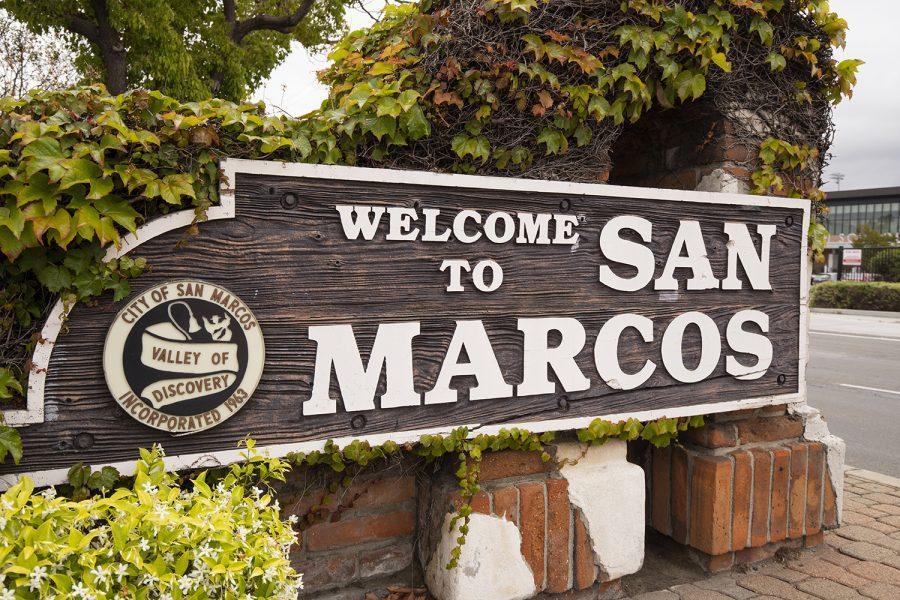Young e-bike riders will be under a kind of community watch in San Marcos after the City Council voted unanimously Tuesday, Oct. 28, to put a pilot safety program in place built on state legislation unique to San Diego County.
The ordinance, which includes an enforcement mechanism, prohibits children under age 12 from riding Class 1 and Class 2 electric bicycles. Class 1 e-bikes are pedal-assisted, have no throttle, and have a top speed of up to 20 mph, while Class 2 e-bikes have the same characteristics plus a throttle. California law prohibits riders under age 16 on Class 3 e-bikes, which are pedal-assisted, have a throttle and can reach speeds of 28 mph.
Assembly Bill 2234, developed by Assemblymember Tasha Boerner (D-77th District) of Encinitas, was the catalyst for the new ordinance. Passed in September 2024, it created the San Diego Electric Bicycle Safety Pilot Program, which allows San Diego County and cities within the region to adopt such rules, according to the law. The program runs through Jan. 1, 2029, and aims to test new safety measures as e-bikes become increasingly popular among young riders.
“It’s a pilot program through the state. And we are instituting this pilot program and we are creating our own pilot program here in San Marcos,” Councilmember Danielle LeBlang explained during Tuesday’s meeting. “So the way that 2234 works is we are just taking the wording of that and putting it in our ordinance.”
San Marcos’ action comes in the wake of law enforcement reports of a rise in e-bike accidents across the county, including 82 crashes in the past year — most involving riders between the ages of 11 and 17, according to a city staff document. It also follows similar though less-stringent actions in Carlsbad and Encinitas, which declared emergencies after sharp increases in e-bike-related crashes and fatalities.
The ordinance coincides with the city’s launch of its Ride Right campaign, partnering with the San Marcos Unified School District, county Sheriff’s Office and parent groups to organize on-campus events to raise awareness, increase enforcement and safety training opportunities, and install signs prohibiting e-bikes on sidewalks in business districts, according to a city news release.
Such a campaign is mandated as part of AB-2234.
“We’re relying on kids to have good character, and I think they do for the most part,” Mayor Rebecca Jones said at Tuesday’s meeting. “I think it’s important for our kids to understand that we care about them, we want them to be safe, we want them to know the rules of the road, and we want to make sure we can do everything we can as part of the stool, the four-legged stool,” referring to the collective efforts of families, the school district, Sheriff’s Office and city.
Enforcement will begin with a warning period through Jan. 31. After that time, violations will carry a $25 fine, with responsibility shared by parents or guardians, according to the ordinance. The penalty can be waived, however, if proof is provided within 120 days that the young rider has completed an approved e-bike safety and training program.
Funding for the pilot program will come from Measure Q, a 1-cent sales tax approved by San Marcos voters in November 2024. The city will allocate $77,000 toward a series of initiatives:
✓ $25,000 for sheriff’s deputy overtime for e-bike enforcement and education.
✓ $16,500 for safety training in partnership with the San Marcos Unified School District and a mobility group.
✓ $20,500 for new signs prohibiting e-bikes on sidewalks in business areas.
✓ $15,000 for outreach materials.
Two public commenters voiced support ahead of the council’s vote, but there were questions.
“Until statewide laws are enacted, which are needed, it’s critical our cities look at alternative routes like this to keep our communities and kids safe,” San Marcos resident and City Council candidate Alison Stanton said. “I absolutely support this. And if I’m being honest, I think 12 is still too young.”
Resident John Mosher wondered, however — what happens to an e-bike if a child is cited?
“You’ve got a bike that essentially, it’s illegal that they’re even riding it. So, is there impound?” Mosher asked the council.
If so, would an e-bike be impounded until the child was old enough to ride it? Would you send them home on the bike after being cited and fined?
“The goal is definitely not to acquire a large stable of e-bikes,” City Manager Michelle Bender said. Unless there is an egregious incident of some kind where an e-bike might have to be taken, she said, “the goal is to get that bike back to the family as quickly as possible.”
Councilmember María Nuñez also had some concerns, mainly with funding such well-intended efforts while the pilot program plays out.
“I think this is a great start and certainly a timely topic,” Nuñez said ahead of the vote. “For me, there are other missing pieces.”
Nuñez indicated that the city should consider some kind of contingency if the $77,000 ends up not being enough to support the program through its end date.
LeBlang said that the city, county and state are trying this out to see how it works, which means there might be some unknowns.
“So they’re learning as they go. We are learning as we go,” she told her colleagues.
Ultimately, LeBlang said, the goal is not to punish and monitor every 11- to 12-year-old.
“I think it’s empowerment over punishment, honestly,” she said.
Given the overall number of incidents involving e-bikes and children countywide, including North County cities, Deputy Mayor Mike Sannella said the ordinance and state pilot law should only be the beginning.
“I do think this is a challenge that needs to be proactively engaged by our community,” Sannella said ahead of the vote. “What we really need in the long term is a statewide set of laws that will govern e-bikes and protect the youth that are riding.”
Letters to the editor are welcome. Send letters to letters[at]northcoastcurrent.com.






